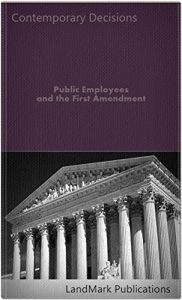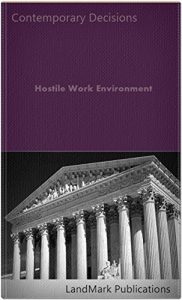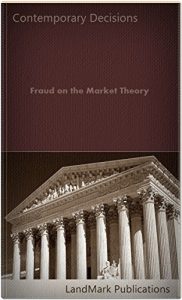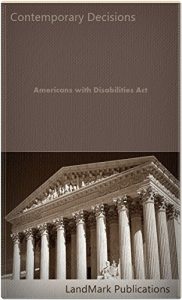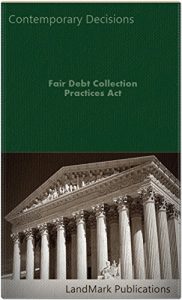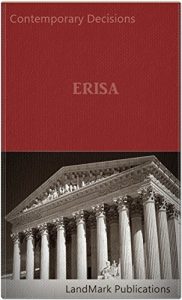THIS CASEBOOK contains a selection of 183 U. S. Court of Appeals decisions that analyze and discuss the First Amendment rights of public employees under Garcetti v. Ceballos. The selection of decisions spans from 2006 to the date of publication.
"[P]ublic employees do not surrender all their First Amendment rights by reason of their employment." Garcetti v. Ceballos, 547 U.S. 410, 417, 126 S.Ct. 1951, 164 L.Ed.2d 689 (2006). "Rather, the First Amendment protects a public employee's right, in certain circumstances, to speak as a citizen addressing matters of public concern." Id. While the protection of government employee speech serves both the individual's interest and "the public's interest in receiving the well-informed views of government employees engaging in civic discussion," the public interest is also served by "respect[ing] the needs of government employers attempting to perform their important public functions." See id. at 419-20, 126 S.Ct. 1951. As such, "while the First Amendment invests public employees with certain rights, it does not empower them to 'constitutionalize the employee grievance.'" Id. at 420, 126 S.Ct. 1951 (quoting Connick v. Myers, 461 U.S. 138, 154, 103 S.Ct. 1684, 75 L.Ed.2d 708 (1983)). Coomes v. Edmonds School Dist. No. 15, 816 F. 3d 1255 (9th Cir. 2016).
"[T]he law is settled that as a general matter the First Amendment prohibits government officials from subjecting an individual to retaliatory actions . . . for speaking out." Mercado-Berrios v. Cancel-Alegría, 611 F.3d 18, 25 (1st Cir. 2010) (omission in original) (quoting Hartman v. Moore, 547 U.S. 250, 256 (2006)). This rule holds true in public employment as well, but "in recognition of the government's interest in running an effective workplace, the protection that public employees enjoy against speech-based reprisals is qualified." Id. at 26; see also Garcetti v. Ceballos, 547 U.S. 410, 418 (2006) ("When a citizen enters government service, the citizen by necessity must accept certain limitations on his or her freedom."). McGunigle v. City of Quincy, (1st Cir. 2016).
The First Amendment does not protect speech by public employees that is made pursuant to their employment responsibilities—no matter how much a matter of public concern it might be. See Garcetti, 547 U.S. at 423-24, 126 S.Ct. 1951. In Garcetti, the Court explained "that when public employees make statements pursuant to their official duties, the employees are not speaking as citizens for First Amendment purposes, and the Constitution does not insulate their communications from employer discipline." Id. at 421, 126 S.Ct. 1951. Consequently, "[r]estricting speech that owes its existence to a public employee's professional responsibilities does not infringe any liberties the employee might have enjoyed as a private citizen." Id. at 421-22, 126 S.Ct. 1951. Coomes v. Edmonds School Dist. No. 15, ibid.
"[P]ublic employees do not surrender all their First Amendment rights by reason of their employment." Garcetti v. Ceballos, 547 U.S. 410, 417, 126 S.Ct. 1951, 164 L.Ed.2d 689 (2006). "Rather, the First Amendment protects a public employee's right, in certain circumstances, to speak as a citizen addressing matters of public concern." Id. While the protection of government employee speech serves both the individual's interest and "the public's interest in receiving the well-informed views of government employees engaging in civic discussion," the public interest is also served by "respect[ing] the needs of government employers attempting to perform their important public functions." See id. at 419-20, 126 S.Ct. 1951. As such, "while the First Amendment invests public employees with certain rights, it does not empower them to 'constitutionalize the employee grievance.'" Id. at 420, 126 S.Ct. 1951 (quoting Connick v. Myers, 461 U.S. 138, 154, 103 S.Ct. 1684, 75 L.Ed.2d 708 (1983)). Coomes v. Edmonds School Dist. No. 15, 816 F. 3d 1255 (9th Cir. 2016).
"[T]he law is settled that as a general matter the First Amendment prohibits government officials from subjecting an individual to retaliatory actions . . . for speaking out." Mercado-Berrios v. Cancel-Alegría, 611 F.3d 18, 25 (1st Cir. 2010) (omission in original) (quoting Hartman v. Moore, 547 U.S. 250, 256 (2006)). This rule holds true in public employment as well, but "in recognition of the government's interest in running an effective workplace, the protection that public employees enjoy against speech-based reprisals is qualified." Id. at 26; see also Garcetti v. Ceballos, 547 U.S. 410, 418 (2006) ("When a citizen enters government service, the citizen by necessity must accept certain limitations on his or her freedom."). McGunigle v. City of Quincy, (1st Cir. 2016).
The First Amendment does not protect speech by public employees that is made pursuant to their employment responsibilities—no matter how much a matter of public concern it might be. See Garcetti, 547 U.S. at 423-24, 126 S.Ct. 1951. In Garcetti, the Court explained "that when public employees make statements pursuant to their official duties, the employees are not speaking as citizens for First Amendment purposes, and the Constitution does not insulate their communications from employer discipline." Id. at 421, 126 S.Ct. 1951. Consequently, "[r]estricting speech that owes its existence to a public employee's professional responsibilities does not infringe any liberties the employee might have enjoyed as a private citizen." Id. at 421-22, 126 S.Ct. 1951. Coomes v. Edmonds School Dist. No. 15, ibid.
